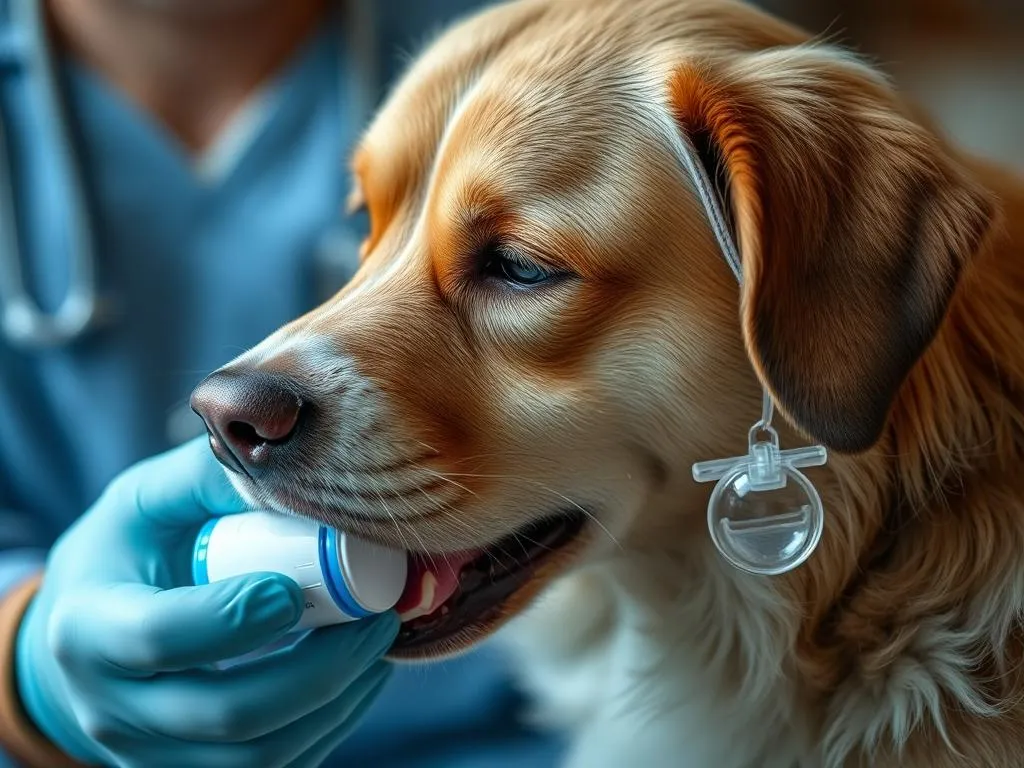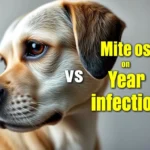
Dogs are naturally curious creatures, and their inquisitive nature can sometimes lead them into dangerous situations. One common emergency pet owners face is when their dog ingests human medication. It’s crucial to act quickly and understand the potential risks involved. Here’s a comprehensive guide to help you navigate this stressful situation, including understanding the risks, immediate actions to take, veterinary treatment, prevention strategies, and recognizing when to seek help.
Understanding the Risks
Types of Human Medications Commonly Ingested
Many types of human medications can be harmful if ingested by dogs. Here are a few common categories:
- Pain Relievers (NSAIDs): Medications like ibuprofen and naproxen can cause severe gastrointestinal bleeding and kidney failure in dogs.
- Antidepressants: Drugs such as fluoxetine and sertraline can lead to symptoms like lethargy, vomiting, and even seizures.
- Benzodiazepines: Medications like diazepam can depress the central nervous system, leading to severe drowsiness or respiratory distress.
- Acetaminophen: This common pain reliever can be toxic to dogs, causing liver damage and red blood cell destruction.
Understanding the potential toxicity of these medications can help you recognize the gravity of the situation if your dog has ingested any of them.
How Dosage Affects Toxicity
The severity of toxicity is heavily influenced by dosage. A small amount of a medication may not cause any harm, while a larger dose can be life-threatening. Factors that affect toxicity include:
- Dog’s Size: Smaller dogs are generally more susceptible to the toxic effects of medications than larger breeds.
- Age: Puppies and older dogs may have compromised systems that make them more vulnerable.
- Health Condition: Pre-existing health issues can exacerbate the effects of toxins.
Being mindful of these factors can help you better assess the situation.
Common Symptoms of Medication Ingestion
If your dog has consumed human medication, watch for the following symptoms, which can vary depending on the type of medication ingested:
- Vomiting: This is often the first sign of toxicity.
- Lethargy: A sudden lack of energy or interest in activities.
- Seizures: Neurological symptoms can indicate severe poisoning.
- Diarrhea: Gastrointestinal distress is common.
- Pacing or Restlessness: Behavioral changes may indicate discomfort or distress.
Recognizing these signs early can be crucial for your dog’s health.
Immediate Actions to Take
Assessing the Situation
The first step is to assess what medication was ingested and how much.
- Check the Packaging: If possible, find the medication’s packaging to determine the dosage and active ingredients.
- Note the Time: Record when the ingestion occurred, as this information is vital for your veterinarian.
Understanding the specifics can help your vet provide the most effective treatment.
Contacting a Veterinarian
As soon as you suspect your dog has ingested human medication, contact your veterinarian or an emergency animal clinic. Be prepared to provide:
- The name of the medication.
- The amount ingested.
- The time of ingestion.
- Your dog’s weight and health history.
This information will help your vet assess the urgency of the situation and recommend immediate steps.
Emergency Measures at Home
In some instances, you may need to take emergency measures at home:
- Inducing Vomiting: If advised by a veterinarian, you may induce vomiting using hydrogen peroxide. However, do not attempt this without professional guidance.
- Activated Charcoal: This can be given to help absorb the medication, but again, consult your vet first.
Remember, home treatments may not always be appropriate, and it’s better to err on the side of caution by getting professional help.
Veterinary Treatment and Care
What to Expect at the Vet’s Office
When you arrive at the vet’s office, expect the following:
- Examination: The vet will assess your dog’s condition and may ask additional questions.
- Blood Tests: These may be performed to evaluate organ function and detect any toxins in the system.
Based on the findings, the vet will recommend a treatment plan tailored to your dog’s needs.
Potential Costs and Considerations
Veterinary care for medication ingestion can vary in cost depending on the severity of the situation and the treatments required. Here’s a rough breakdown:
- Initial Consultation: $50 – $100
- Blood Work: $100 – $300
- Treatment (IV fluids, antidotes): $200 – $1,000+
Having pet insurance can significantly alleviate the financial burden of such emergencies. It’s wise to consider this option if you haven’t already.
Follow-up Care
After treatment, it’s essential to monitor your dog for any lingering effects. Keep an eye out for:
- Behavioral Changes: Increased lethargy or restlessness may indicate ongoing issues.
- Physical Symptoms: Continued vomiting, diarrhea, or seizures require immediate attention.
Prompt action can make a significant difference in your dog’s recovery.
Prevention Strategies
Safe Storage of Medications
Preventing medication ingestion starts with safe storage practices. Here are some tips:
- Keep Medications Out of Reach: Store all medications in high cabinets that your dog cannot access.
- Use Child-Proof Containers: Ensure that all medication containers have secure lids.
- Disposing of Unused Medications: Properly dispose of any medications you no longer need to reduce the risk of accidental ingestion.
These strategies can go a long way in keeping your dog safe.
Educating Household Members
Make sure everyone in the household is aware of medication safety:
- Discuss the Dangers: Talk to family members and guests about the risks associated with leaving medications unattended.
- Proper Disposal: Encourage safe disposal methods for unused medications to prevent accidents.
Creating a culture of awareness can help prevent emergencies.
Regular Vet Check-ups
Regular veterinary visits can help monitor your dog’s health and prevent dangerous situations. During these visits, discuss any behavioral changes that may indicate a propensity for medication ingestion.
When to Seek Help
Recognizing Emergencies
It’s vital to be able to identify when your dog needs immediate veterinary attention. Signs that indicate an emergency include:
- Severe Vomiting: Repeated vomiting or vomiting blood.
- Unconsciousness: Any loss of consciousness requires immediate help.
- Seizures: Seizures that last longer than a few minutes or occur in clusters.
Understanding these signs can help you act swiftly in a crisis.
Resources for Pet Owners
There are several resources available for pet owners facing emergencies:
- ASPCA Poison Control: A hotline that provides guidance on poisonous substances.
- Animal Poison Control Center: Another valuable resource for emergency situations.
Having these contacts on hand can be beneficial in times of need.
Conclusion
When it comes to your dog’s safety, knowledge is power. If your dog has ingested human medication, understanding the risks, knowing the symptoms, and taking immediate action can save your pet’s life. Remember to store medications safely, educate those around you, and maintain regular veterinary check-ups to prevent such emergencies. In the end, being proactive and informed will greatly enhance your pet’s well-being and safety.









